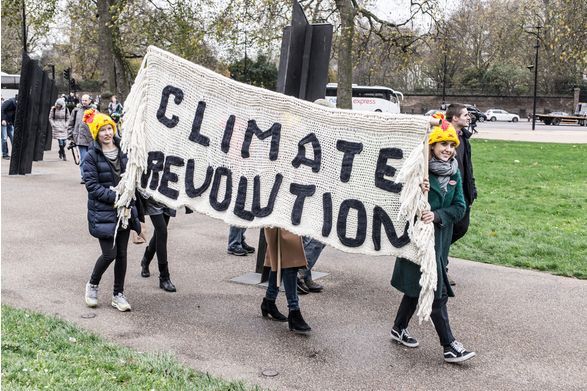Quote of the Day:
Climate Strike protests are supposed to bring attention to the science showing that human-made global warming is becoming a problem. Fair enough. But some participants see climate change as pretext for destroying a market system that they have always hated.
–Ronald Bailey in “Capitalism is the Key to Fixing Climate Change”
Global warming? Global cooling?
It doesn’t matter. The prescriptions are always the same. More government. Less market. Reason’s Ronald Bailey quotes a Guardian headline that says it all: “Ending Climate Change Requires Ending Capitalism.”
But what if the opposite is true?
Bailey thinks capitalism can save the planet:
Global warming is a classic example of what happens in an open-access commons. The atmosphere is unowned, so no one has an incentive to protect and conserve it. Instead, people overexploit and pollute it. Historically this happened with sulfur dioxide, carbon monoxide, and smoke. In the United States, cities initially implemented regulations to cut back on noxious air pollutants. (For example, the first smoke abatement regulations were enacted by Chicago and Cincinnati in 1881.) Eventually federal regulations and market mechanisms were adopted. As a result, since 1980 air pollutants have collectively declined by 68 percent while the economy grew by 175 percent.
Scientists call this the environmental Kuznets curve. Environmental commons tend to deteriorate as countries begin to develop economically—but once per-capita income reaches a certain level, the public starts to demand a cleanup. It's a U-shaped pattern: Economic growth initially hurts the environment, but after a point it makes things cleaner. By then, slowing or stopping economic growth will delay environmental improvement, including efforts to mitigate the problem of man-made global warming.
Bailey quotes MIT economist Andrew McAfee on capitalism’s benefit to the planet:
We have finally learned how to tread more lightly on our planet….In America—a large rich country that accounts for about 25 percent of the global economy—we're now generally using less for most resources year after year, even as our economy and population continue to grow. What's more, we're also polluting the air and water less, emitting fewer greenhouse gases, and seeing population increases in many animals that had almost vanished. America, in short, is post-peak in its exploitation of the earth. The situation is similar in many other rich countries, and even developing countries such as China are now taking better care of the planet in important ways.
. . .
The strangest aspect of the story is that we didn't make any radical course changes to eliminate the trade-off between human prosperity and planetary health. Instead, we just got a lot better at doing things we'd already been doing. In particular, we got better at combining technological progress with capitalism to satisfy human wants and needs.
Does this mean we can expect Green New Deal advocate Rep. Alexandria Ocasio-Cortez to embrace capitalism?
Not really. AOC’s former chief of staff Saikat Chakrabarti let the cat out of the bag when he admitted that the real purpose of the Green New Deal is to reorganize the “entire economy.”
In other words, capitalism is the target of the climate change movement.


